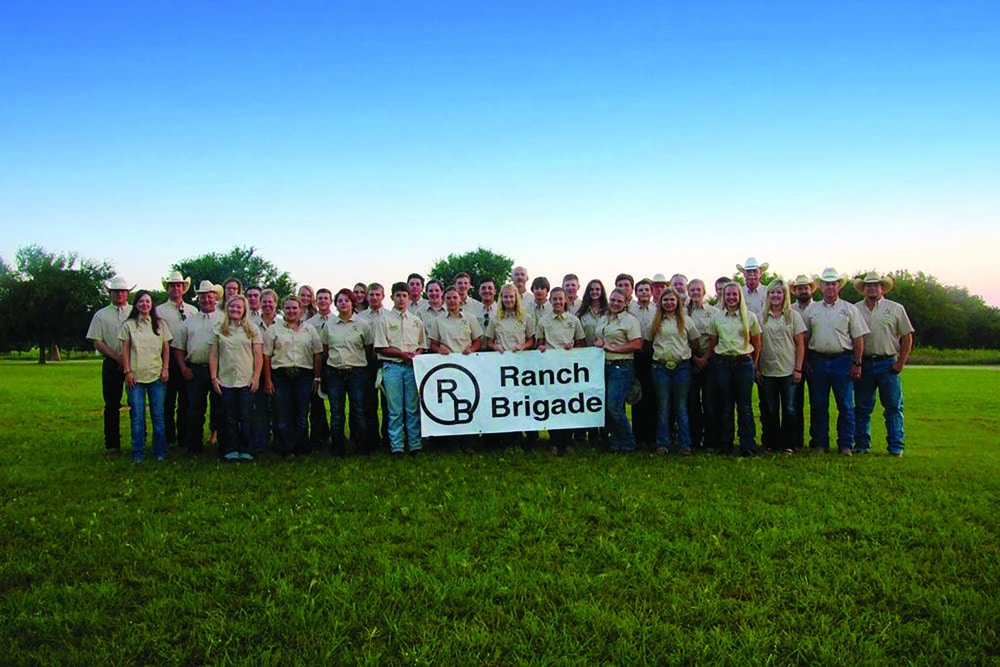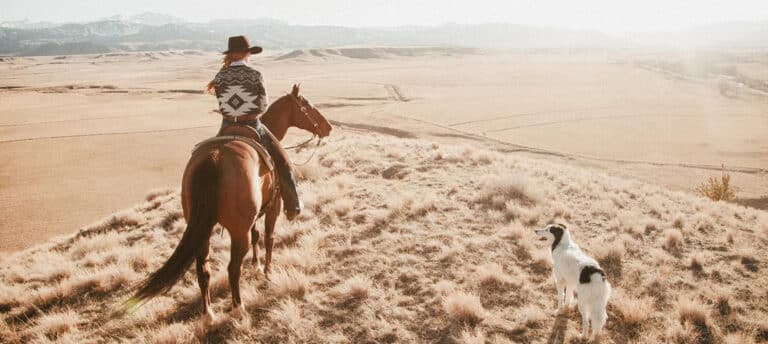
Written by Will Cantu
When I was a little boy, I dreamed of being a cowboy. Now, I want to be a rancher. There is a difference. Cowboys wrangle cattle. Ranchers manage natural resources to produce high-quality beef.
I became aware of the difference on my grandparents’ ranch in Lee County, but my stint at Ranch Brigade camp last summer expanded my understanding. Ranch Brigade focuses on ranching, land stewardship and leadership development.
As an Eagle Scout and a long-time church member, I’ve been to a lot of camps. Between scouting and FFA, I’ve also had many chances to learn leadership skills. The Ranch Brigade is one of the best experiences I’ve ever had. It’s a just-right mix of hands-on experience, lecture and fun.
Teens, ages 13–17, come from all over Texas to attend Ranch Brigade. Some come from a ranching background and others don’t. Your beginning level of knowledge doesn’t matter because there’s a lot to learn.
As soon as we got to camp, which was held on the Warren Ranch near Santa Anna, we were divided into herds: Angus, Brahman, Charolais and Hereford. Throughout the week, we competed in many arenas for the honor of Top Herd.
The advisory committee and instruction staff included professionals from the TCU Ranch Management School, the Fort Worth Stock Show and Rodeo, state and federal natural resource agencies, universities and working ranches. These professionals know what you need to know and are committed to teaching you in a way that is meaningful and memorable.
For instance, the first thing we did at camp was to perform necropsy on a heifer. It’s dissection on a large-scale that gives you an immediate understanding of bovine anatomy and allows you to see the relationship of forage to beef.
The instructors were really good at keeping us engaged by alternating between classroom work, field work such as plant identification and fun. We spent our “free” time practicing for the ranch competition, which included goat roping, post hole digging, goat sorting and wagon racing.
Communication is another component of camp. We were each assigned a Silver Bullet, a quote that was memorized to be spoken on command. If asked—and you got asked a lot—you had to recite the quote in front of the group and explain what it meant to you. It helps take the fear out of public speaking.
Creating a tri-fold is a really big deal at Ranch Brigade. The tri-fold is the primary communication tool used for presentations when you return home. The last night of camp doesn’t end until all of the cadets have finished their tri-folds. Our camp finished at 1:20 a.m.—the earliest of any Ranch Brigade so far. Sleep is optional at Ranch Brigade.
The goal of camp isn’t to make you the best rancher in the world; it’s to provide you enough knowledge so you can tell the story of stewardship and give back to the community. You’re encouraged to make presentations and work with the media.
The more presentations you make after returning home, the more likely it is that you’ll earn a chance to go back to Ranch Brigade as an assistant herd leader and receive one of several scholarships provided by the Fort Worth Stock Show and Rodeo. The largest is $4,000.
Ranch Brigade is something I will remember for a long time, not only because of the people I met, but because of the impact it made on me. It changed the way I think about the land and cattle and what we can do with them.
Cattle aren’t just steaks but tools that allow us to improve the land. And land isn’t just grass and dirt, it’s the foundation of a way of life that keeps rangeland open and productive. Productive rangeland provides a home to things such as water recharge, oxygen production and wildlife habitat. Whether people realize it or not, rangeland is home base for life—and ranchers take care of it for us all.
Texas Brigades FAQs
The Texas Brigades is a wildlife-focused leadership development program for high school youth ages 13–17. There are six different camps: Bobwhite Brigade, Buckskin Brigade, Bass Brigade, Waterfowl Brigade, Ranch Brigade and Coastal Brigade (new). The camps are held on private ranches and at environmental camps in different areas of Texas. Each camp is 4 ½ days long.
What will I learn at Texas Brigades?
You will study anatomy, biology, habitat management, population dynamics, conservation, watershed management and more. In addition, you will study photography, art, entomology, botany, leadership skills and camp-specific subjects such as fly-tying and firearms safety.
What do you mean “leadership skills?”
No matter what profession you choose, it will be important to develop the ability to think, plan and communicate. Many of the activities at the Texas Brigades revolve around teambuilding and critical thinking. The Brigades develops your ability to tell stewardship’s story, so you will learn to write for the print media, how to present educational programs and even how to be interviewed on radio and television.
What are the qualifications?
You must be 13–17 years old and commit to conducting a minimum of three educational programs when you return home.
Is there a fee?
Yes, there is a $500 tuition fee for cadets, which covers meals, lodging and supplies. Don’t let money stop you from applying. Texas Brigades will help you find financial assistance.
How do I apply?
Applications are online at www.TexasBrigades.org or you may obtain an application by contacting Zelina Alvarado.
For an application or more information about Ranch Brigade and other camps, go to www.TexasBrigades.org, call 855-TXBRIGS or email zalvarado@texasbrigades.org

